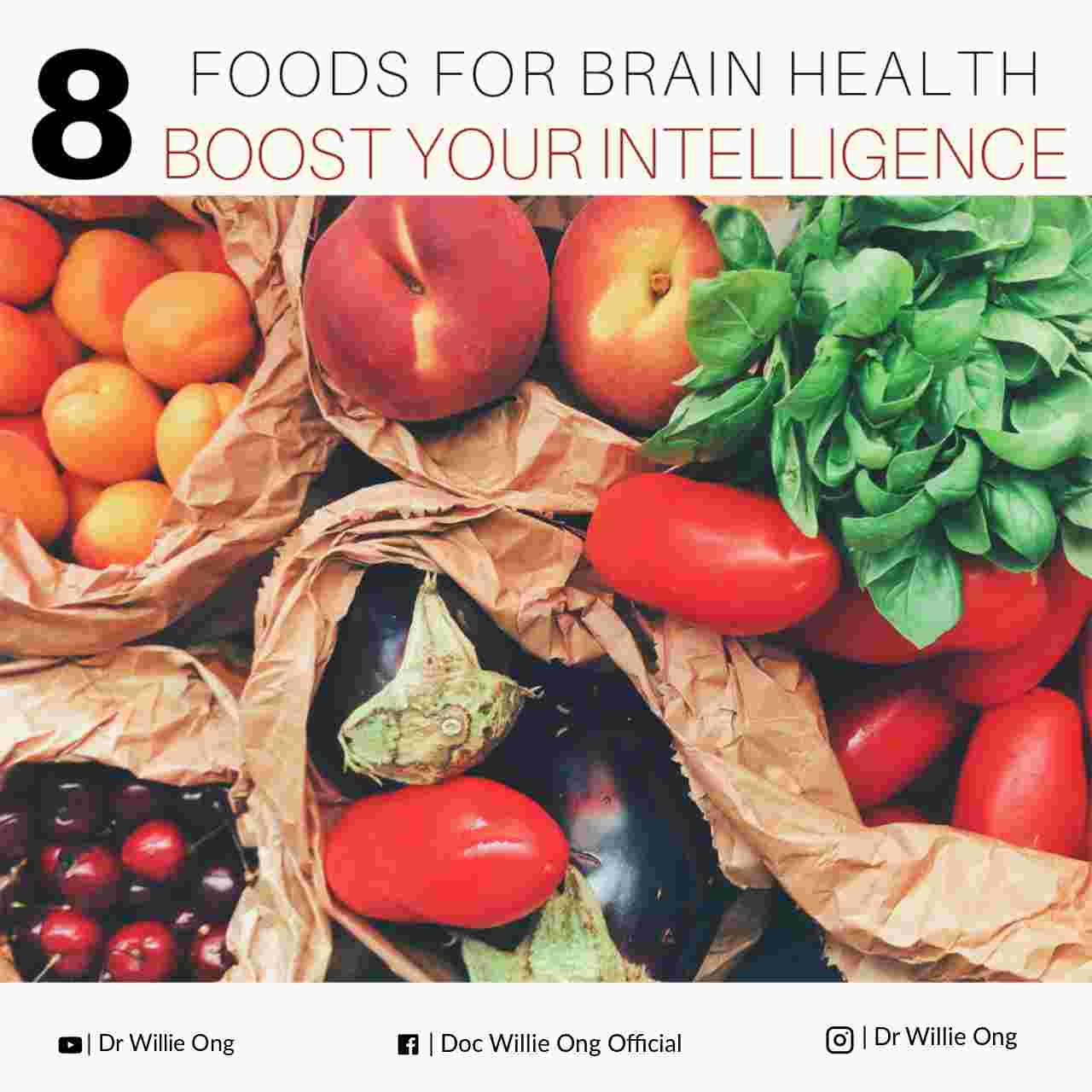By Dr. Willie Ong
Are there foods to keep your brain healthy? Can these foods make you smarter? Let’s find out:
Mixed nuts
Nuts contain vitamin E and healthy fats. Studies show that higher levels of vitamin E correspond to better brain function as one gets older. Nuts may also help improve memory and mental clarity. Nuts contain the good fats, namely monounsaturated and polyunsaturated fats, which can keep the arteries patent. And healthy arteries mean good blood flow and nutrition to the brain. Walnuts, almonds, cashew and peanuts are packed with healthy oils. However, some nuts are salty and high in calories. Just eat a handful or an ounce as a snack.
Oily fish
Oily fish like sardines, tuna, mackerel and salmon are filled with healthy omega-3 fatty acids — a type of fat that makes your blood less likely to form clots. Studies show that Omega-3s in oily fish may reduce triglyceride levels, lower blood pressure and reduce the risk of stroke. Hence, eating oily fish is essential to a healthy brain. Researchers believe that omega-3s may block the production of inflammatory substances causing rheumatoid arthritis and lupus. Even more encouraging are studies that suggest that omega-3s may protect brain cells from Alzheimer’s disease. To get the full benefit, fresh oily fish is better than canned fish where omega-3 levels are reduced. The recommended serving size is 4 ounces of fish taken three times a week.
Tomatoes, ketchup and tomato sauce
Fresh tomatoes and those found in ketchup and tomato sauce are extremely high in antioxidants, especially carotenoids like beta-carotene and lycopene. Lycopene is the compound that turn fruits and vegetables orange-red. Lycopene does its work by removing the harmful free radicals from the body. This is the reason why tomatoes may help protect the brain and prevent dementia and Alzheimer’s disease. In addition, tomatoes may reduce the risk for heart disease, prostate cancer and other cancers. In order to release its lycopene, tomatoes should be cooked with a little olive oil. Ideally, we should consume at least ten tablespoons of tomato sauce a week or approximately 150 ml a week.
Eggs
Eggs are an excellent choice for your child’s breakfast. Egg yolks are rich in choline, an important nutrient that can help improve memory. Choline is needed for the child’s first six years of life and may help achieve complete development of the brain’s memory areas. Eggs are loaded with vitamin A, iron, and folate, too. One egg yolk contains 200 mg of choline and the child may consume one egg per day. For adults with high cholesterol, you can limit your egg intake to three eggs per week only.
Coffee
In moderation amounts, coffee drinking may help reduce the risk of Alzheimer’s disease and prevent a decline in brain function. Coffee contains antioxidants and caffeine, which has been shown to improve short-term memory. Limit yourself to 1 to 2 cups of coffee per day only because too much caffeine can lead to palpitation and spikes in blood pressure. Moreover, avoid mixing fatty products in your coffee like whip cream, sweets, and full cream milk. Just plain black coffee is fine.
Good carbohydrates like wheat bread, brown rice and vegetables
For the brain to function properly, it needs a steady supply of energy. To achieve this, we should choose the good carbohydrates, which are absorbed more slowly by the body. On the other hand, bad carbohydrates (like white rice and white bread) make the blood sugar rise and drop quickly. Hence, to keep your mind constantly alert, choose to eat wheat bread, brown rice, and vegetables (good carbohydrates) rather than white rice and white bread (bad carbohydrates).
Avocados
It contain healthy monounsaturated fats, which help promote blood flow to the brain. Avocados are also rich in the B vitamins. And as I’ve mentioned, healthy blood flow through the arteries means a healthy brain. Animal studies show that avocado oil can prevent strokes by slightly lowering the blood pressure. Similarly, a 2011 study in the British Journal of Neurosurgery revealed that a combination of avocado and soybean fats helped prevent nerve damage in animals exposed to low oxygen levels.
Blueberries
Studies show that regular blueberry consumption can help improve memory and mental function. Furthermore, blueberries are teeming with antioxidants, which help reduce free radical damage to the body’s cells. Other reports claim that blueberries may also delay the age-related decline in physical movement, coordination and balance.
In summary, these are just some of the healthy foods that can keep your brain and body healthy. Good luck.



